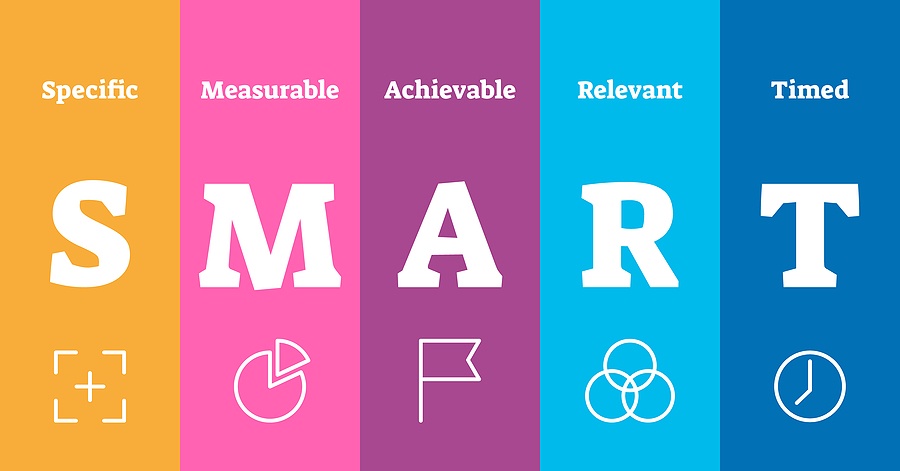SMART is an acronym used to describe the process of setting goals. The acronym stands for the words “specific,” “measurable,” “achievable,” “relevant” and “time-bound,” which are essential traits of setting objectives. The SMART method provides a way to measure your progress and be accountable for your success. Setting SMART goals allows you to realistically evaluate what you are trying to achieve by assessing what actions to take to reach your goal.
In this article, Melvyn Mangion discusses the way one should set smart goals.
For example, you might set a goal to “get better” at typing. However, upon evaluating this goal using the SMART method, you see that your goal is quite vague. By restating your goal in quantifiable terms, such as “be able to type more words per minute,” you have a SMART goal that can be obtained. The characteristics of this goal can then be further detailed to reflect the remaining traits of the SMART goal process.

Goal setting is a helpful way to build the career you want. By setting objectives and creating a clear roadmap for how you’ll reach your intended target, you can decide how to apply your time and resources to make progress. Without goals, it can be difficult to determine how to get a certain job, promotion or other milestones you want to achieve.
Melvyn Mangion argues that when you set an objective for yourself, you should include each step necessary for success. To help, you can use a framework called SMART goals.
The SMART in SMART goals stands for Specific, Measurable, Achievable, Relevant, and Time-Bound. Defining these parameters as they pertain to your goal helps ensure that your objectives are attainable within a certain time frame. This approach eliminates generalities and guesswork, sets a clear timeline, and makes it easier to track progress and identify missed milestones.
What Is SMART?
SMART is an acronym that stands for the following:
- Specific: The goal should be defined with a clear objective.
- Measurable: There should be metrics that can help you track progress as you work towards attaining your goal.
- Achievable: The goal should not be out of reach or too difficult to achieve, but it should also not be so easy that it is accomplished too quickly.
- Relevant: The goal should align with the current state of your business and directly impact the success of those efforts.
- Time-bound: This means that there is a deadline, after which you will complete your goal.
How To Set Goals
To set SMART goals, follow these 4 steps:
- Set a goal.
- Determine how you will know when you have achieved it.
- Identify what action to take to get there.
- Evaluate your progress using the SMART criteria.